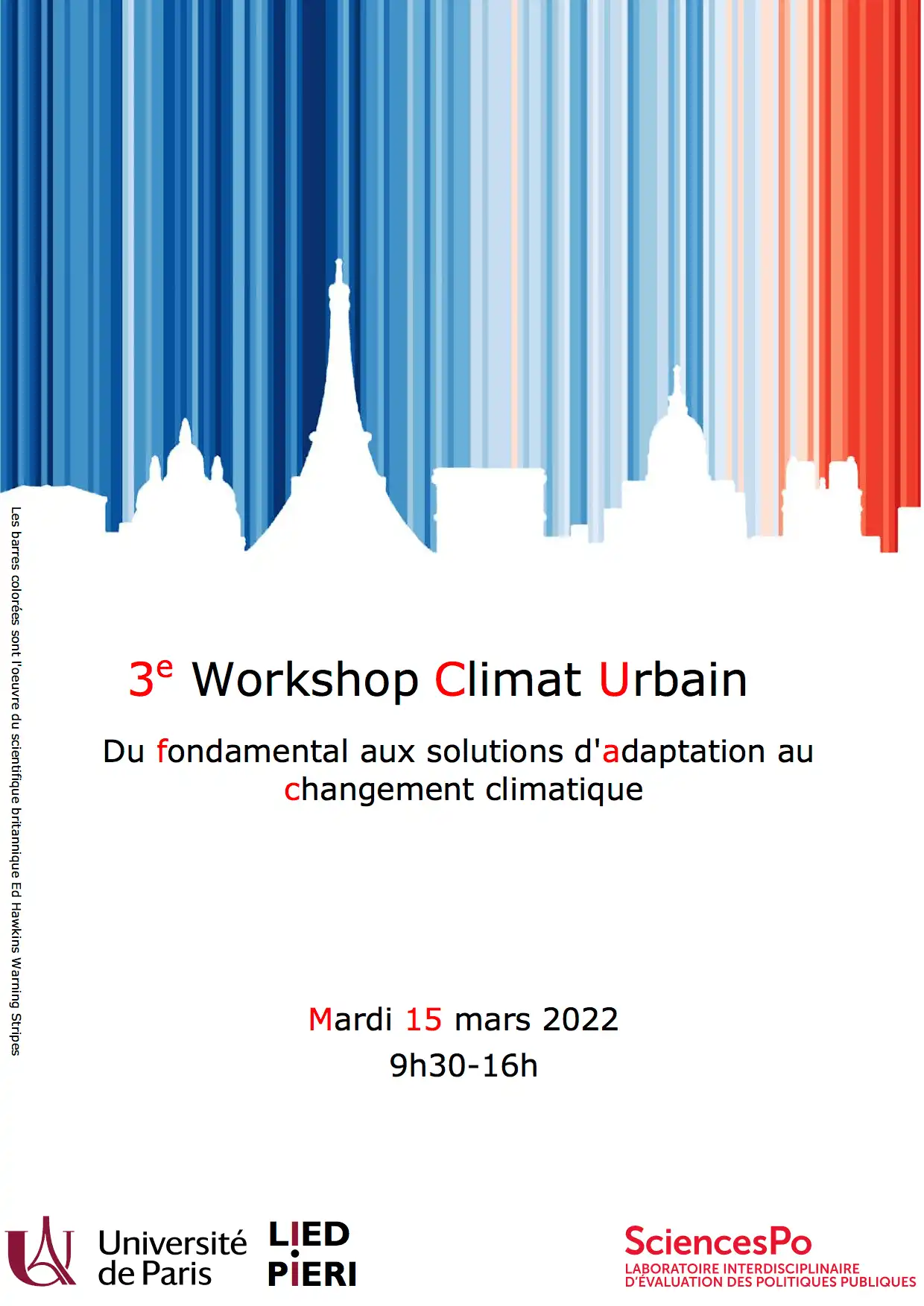Accueil>3ème workshop climat urbain
01.03.2022
3ème workshop climat urbain
À propos de cet événement
Le 01 mars 2022 de 16:00 à 18:00
Le Laboratoire Interdisciplinaire des Énergies de Demain (LIED) (Université de Paris) et l'axe Politiques environnementales du LIEPP (Sciences Po) ont le plaisir de vous inviter à une journée d'étude dédiée au climat urbain :
3ème Workshop Climat Urbain
Du fondamental aux solutions d'adaptation au changement climatique
La journée aura lieu mardi 15 mars 2022 de 9h30 à 16h00, en format hybride.
Lieux : UFR de Physique de l'Université de Paris, (4 rue Elsa Morante, 75013 Paris) et via Zoom
- matin : amphithéâtre Pierre-Gilles de Gennes, au 1er sous-sol
- après-midi : salle Luc Valentin 454A
Inscription gratuite mais obligatoire auprès de martin.hendel@u-paris.fr
Merci de noter que pour les personnes participant en présentiel à l’événement le contrôle du passe vaccinal est obligatoire
Programme :
9h30-10h00 : Accueil-café
10h00-12h00 : Urban climate change considerations for Singapore - séminaire de Matthias Roth (Professor in the Department of Geography at the National University of Singapore)
Abstract : Cites in warm or hot regions are strongly affected by the UHI which increases ambient outdoor temperature and decreases outdoor thermal comfort to possibly intolerable levels. The situation is exacerbated in equatorial/wet climates, where high day- and nighttime air temperature in combination with the high humidity characteristic of the wet tropics, present a particularly challenging living environment for urban residents. Such additional warming generated by the UHI on top of anthropogenic global warming is clearly undesirable. Singapore, located in the tropics next to the equator, is no exception to this. Rapid growth of the city has generated a nocturnal canopy-layer UHI intensity which has doubled in magnitude since 1965; at the same time the spatial extent of the nocturnal UHI has also expanded to accommodate a growing population and expanding industries, often at the expense of vegetated areas. Local growth and development aspirations are therefore likely responsible for a local temperature increase which is about twice that of the global temperature trend over land. Given the homemade nature of this local urban climate change, options exist to mitigate some of the unwanted warming, irrespective of (in)action at the global level regarding anthropogenic global warming. This presentation demonstrates how Singapore has become a hot “little red dot” and introduces some observational and modeling work directed at better understanding the local urban climate.
12h00-14h00 : Pause déjeuner
14h00-16h00 : Workshop "Projets d'adaptation climatique des cours d'école" du groupe de travail "Climat urbain et applications opérationnelles"
À propos de cet événement
Le 01 mars 2022 de 16:00 à 18:00

